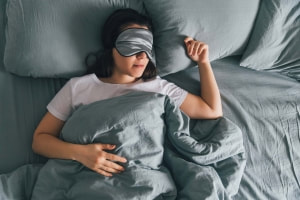Sleep: Why a good night's sleep can help your pain levels, and top tips to improve your sleep10/5/2021
Not only does sleep affect your pain sensitivity, it will stop you from performing at your full potential!
On the other side of the coin, if poor sleep amount and quality negatively impacts your pain experience, then improving both sleep quality and amount can help improve your pain! How much sleep is enough sleep? Everyone knows how much sleep we should be getting per night, for most it is usually 7-9 hours a night appears to be the best amount of sleep. For some people however, as little as 6 hours or as much as 10 hours is the best amount of sleep for them. Have you ever felt drowsy during the day when doing an exciting activity? Have you ever fallen asleep very quickly once you lay down? Have you ever had microsleeps (tiny sleeps when you are otherwise awake)? If this is the case, there is a good chance you are not getting the amount of sleep you need or your sleep is of poor quality. So in order to find out how much sleep you need, you will need to track your hours of sleep and track how you feel during the day, this helps determine what your best amount of sleep is. New technologies, like wrist based fitness watches are very helpful for this as they can track the amount of sleep you have and the quality of sleep you have. Here are some helpful tips below to help you improve your sleep so you can improve how you function during the day. Tips for improving sleep quality
Sweet dreams! Izaac Boylan Accredited Exercise Physiologist
0 Comments
Your comment will be posted after it is approved.
Leave a Reply. |
AuthorSLisa Parkinson Archives
July 2024
Categories
All
|


 RSS Feed
RSS Feed